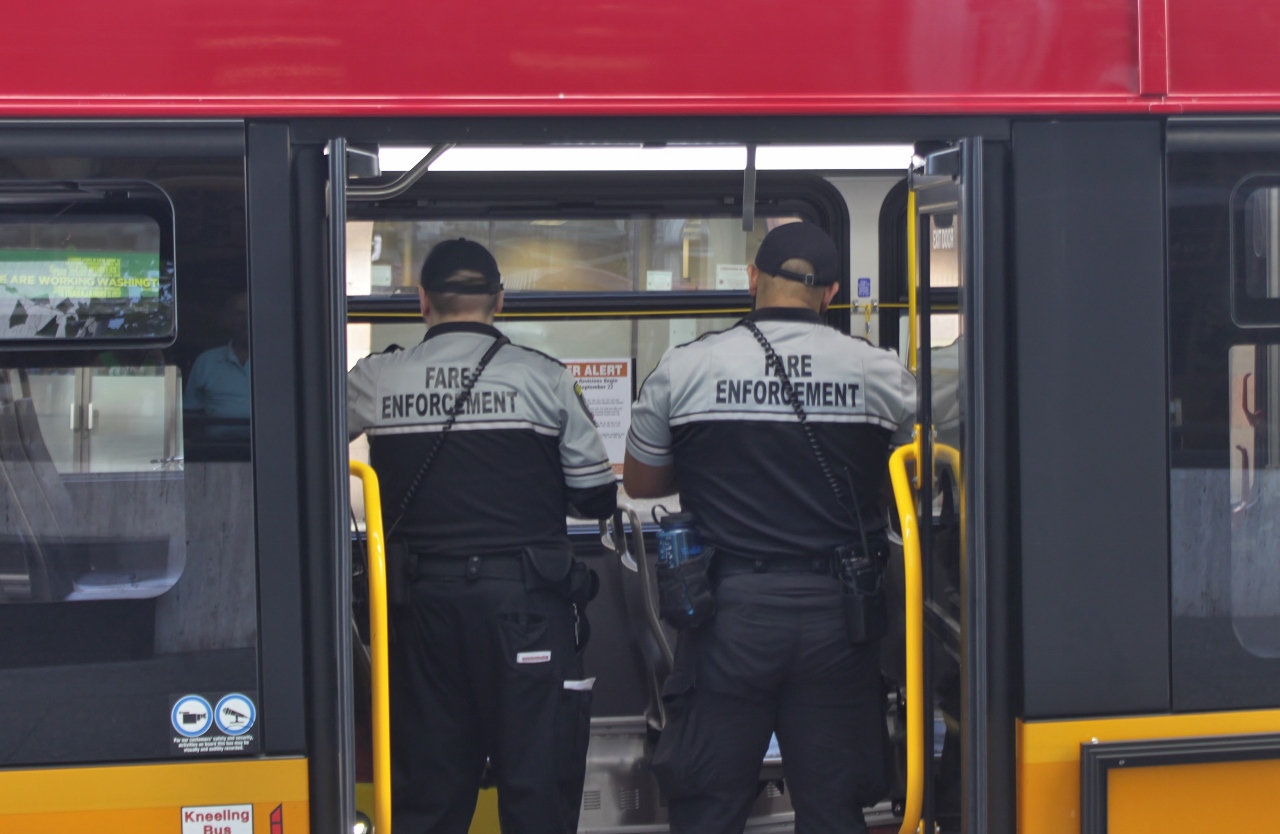
Photo of fare enforcement on RapidRide, courtesy of Bruce Englehardt/Seattle Transit Blog, used with permission.
The past year has been one of operational and policy changes for transit in the Puget Sound region, many of which have touched how people pay fares and the consequences if you don’t — or can’t.
- As buses came out of the Downtown Seattle Tunnel last month, the City moved to all-door boarding on 3rd Ave, which will eventually include fare enforcement in this area.
- Several months prior, King County Metro launched a new fare enforcement program. The program includes lower fines and alternative ways to resolve citations in-house at the agency (rather than through the courts).
- Last month, Sound Transit unveiled its new equity program, and the Board and staff leadership discussed how it will re-evaluate its fare enforcement program using an equity lens.
Tomorrow, April 16 at 1:30 pm, King County Metro staff will present to King County Council their first annual report on fare enforcement and fare violation programs. The presentation will detail the process, programmatic changes, and outcomes of their new policies. You can watch the meeting live here. While it is too early for substantive data on outcomes, we have plenty to celebrate with the new program, and plenty of anecdotal evidence of a more humane fare enforcement.
As we blogged about last summer, TCC, along with our partners at Puget Sound Sage, Seattle King County Coalition on Homelessness, Transit Riders Union, and OneAmerica, were excited for the opportunity to work alongside King County Metro staff as they undertook a thorough re-evaluation of their fare enforcement program.
With our feedback and support, Metro staff, King County Executive Constantine, and the King County Council moved quickly to adopt amendments to King County Code authorizing Metro to use an alternative fare violation resolution process and administer issued fare citations in-house, separating fare citations from the courts as civil infractions.
The new King County Metro program seeks to connect those who haven’t paid their fare with information on how to pay, or reduced fare programs, rather than issuing citations that often end up in the court system. Metro conducted surveys with riders who could not show proof of payment, and found that more than half were below 200% of the federal poverty level. While connecting riders to ORCA LIFT is one critical program element, these survey results suggested that even ORCA LIFT fares may be prohibitively expensive for some riders.
Although we are proud about the development of the new fare enforcement programming, there are still steps needed to address underlying issues that make it difficult for people to pay for a transit trip. To get at continued financial barriers, King County Metro is exploring the possibility of a very low- to no-income fare option to support riders with the least resources. To support consistent enforcement across the region, Sound Transit is also reviewing its program in order to improve equitable outcomes for its riders. We are excited to work with Sound Transit and those most impacted to develop a system that improves access to public transportation for all.




